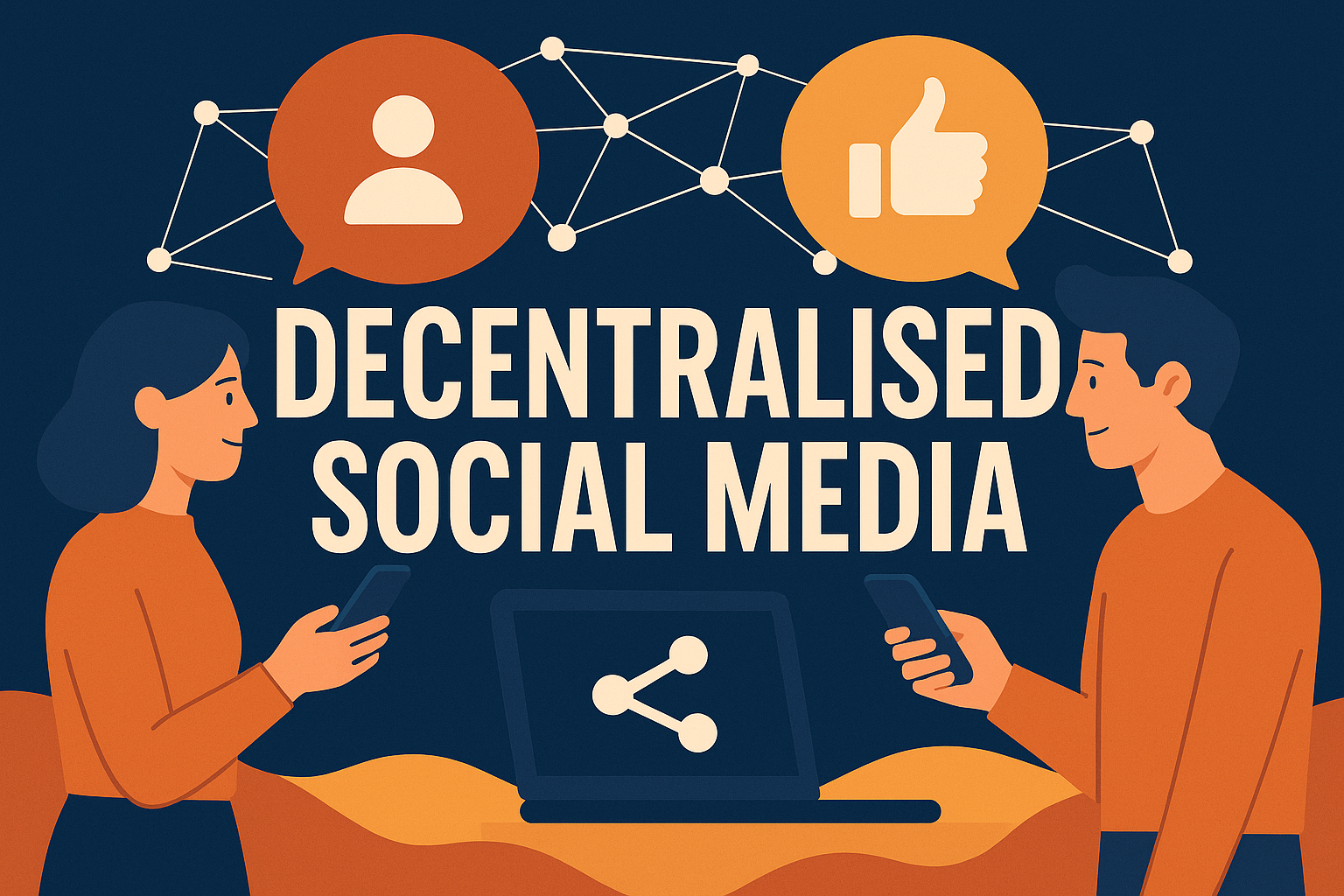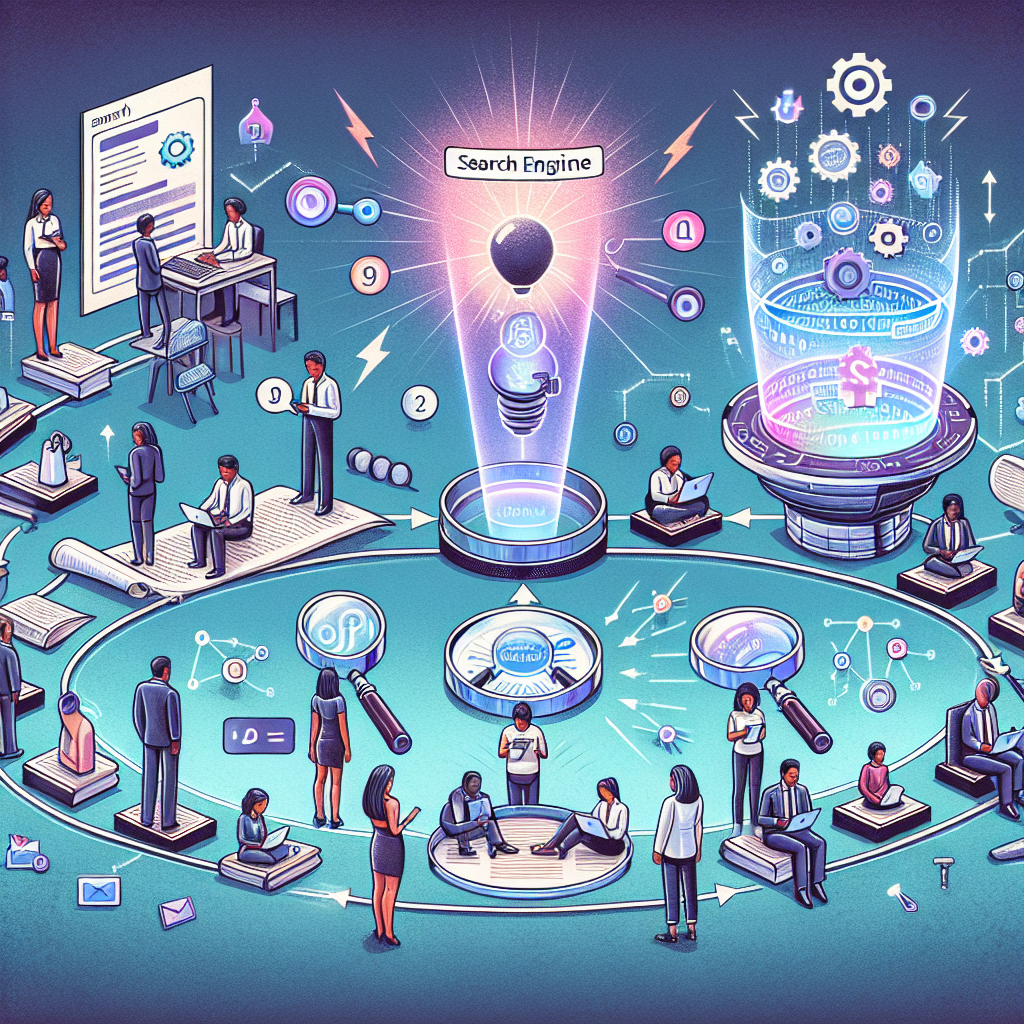Mastodon, Surf, and the End of Algorithmic Tyranny
🧭 Intro: A New Kind of Network
Up until recently, I didn’t know this existed.
Decentralised social media.
A whole world quietly operating outside the usual ad-ridden, algorithm-choked platforms we’ve all been herded into.
I stumbled onto Mastodon through a passing mention, and before I knew it, I was staring at a social feed that felt… peaceful. No ads screaming at me. No algorithm pushing outrage or engagement bait. Just people talking, sharing, building.
It felt like the early internet again—before the big platforms gobbled it all up and turned connection into a commodity.
And that’s when it hit me:
We’ve all been living in rented space online.
Spaces where the landlords keep changing the rules, silencing voices, selling your attention to the highest bidder, and calling it “community standards.”
But these new platforms?
They’re different. They don’t belong to billion-dollar corporations.
They belong to you. Or, if you’re like me… maybe even to the server you run yourself.
So I started exploring.
And what I found might just be the future of social media.
🕸️ What Is Decentralised Social Media?
Let’s break it down without the tech-speak fluff.
Decentralised social media is exactly what it sounds like—platforms that aren’t controlled by one single company, server, or set of rules. Instead of everyone living under one digital landlord (hello, Meta), these platforms are federated—which means there are many separate, independently-run communities (called instances) that can still talk to each other.
It’s like email. You can be on Gmail, someone else can be on ProtonMail, and you can still send each other messages. Same idea here.
The most well-known example is Mastodon. It’s like Twitter—but without Elon, without ads, and without someone deciding which trending topics matter. Each Mastodon instance has its own rules, its own vibe, and its own moderation policies. You can join one that fits your values—or start your own, like I plan to.
Another interesting one is Surf.social, which leans more toward creator-first communities. Less yelling. More meaningful conversations. It’s not just about decentralisation; it’s about designing a better space from the ground up.
🛠️ So, what makes decentralised platforms different from the usual suspects?
| Feature | Centralised (FB, Twitter) | Decentralised (Mastodon, Surf) |
|---|---|---|
| Control | Owned by one company | Run by many users/communities |
| Algorithms | Feed manipulated for engagement | Chronological or community-based |
| Data | You are the product | You own your presence |
| Ads | Everywhere | Usually none or minimal |
| Moderation | Top-down, often opaque | Community-defined and transparent |
These platforms aren’t just alternatives.
They’re liberated networks—spaces where users own the experience, not just float through it hoping not to be banned, buried, or brainwashed by engagement metrics.
🐘 Examples Worth Exploring: Mastodon, Surf.social & Friends
So what does decentralised social media look like in the wild?
Let me introduce you to two platforms that grabbed my attention—each one offering a very different taste of what’s possible when you take the power away from Big Tech.
🐘 Mastodon – Twitter, but civilised
Mastodon is often called the “decentralised Twitter,” but honestly, that’s selling it short. Yes, it looks like Twitter at first glance—short posts, reposts (called “boosts”), hashtags, mentions—but once you spend five minutes in it, you realise it’s got a completely different spirit.
There’s no central algorithm telling you what to see.
No ads. No “you might like this clickbait garbage.”
Just people posting what they want, when they want, and communities growing around shared interest instead of manufactured outrage.
You can join an existing instance (community) based on your interests—tech, art, privacy, philosophy—or you can create your own, where you control the rules, the vibe, and the members. That’s the bit that really caught me. You don’t have to ask permission. You own your space.
It’s not about “going viral.” It’s about being visible to the right people.
🌊 Surf.social – Decentralised, but for Creators
Surf is a newer face in the space, but it’s already showing a lot of promise—especially for creators, thinkers, and those of us who want community without chaos.
Unlike Mastodon, Surf is focused more on connection over reach. It’s not designed to make you famous. It’s designed to make your conversations matter. No ads, no invasive tracking, no content boost based on controversy.
Surf gives you more space to express yourself. Think fewer hot takes, more thoughtful posts. It feels a bit like Medium crossed with a message board—but run by people, not shareholders.
If Mastodon feels like a neighbourhood, Surf feels like a quiet café where the barista knows your name.
Other decentralised platforms worth a glance:
- Pixelfed – Like Instagram, but your photos aren’t being mined for ad targeting.
- PeerTube – A decentralised YouTube alternative for video creators who like independence.
- Lemmy – A Reddit-style platform where the communities moderate themselves.
The key across all of them?
Nobody owns the whole thing.
And because of that, no one can ruin it overnight with a policy update, a billionaire meltdown, or a “whoops, your account has been disabled.”
🔑 Why Decentralised Social Media Matters
Let’s be honest—most people don’t jump ship just because a new boat exists.
They jump because the old one’s leaking, sinking, or on fire.
And right now?
The big platforms are doing all three.
🧠 Your thoughts aren’t yours anymore
Everything you post on Facebook, Twitter, Instagram—it’s filtered, sorted, and prioritised by an algorithm you’ll never fully understand. Your content is served not to your audience, but to whatever audience will generate the most ad revenue.
It’s like whispering poetry into a karaoke machine that auto-tunes you into a car commercial.
🔇 Censorship isn’t always obvious
We’re not just talking about outright bans. We’re talking about shadowbans, buried posts, keyword suppression, deboosting, and policies that change overnight with no warning. One day your blog post is fine. The next, it’s “misinformation.”
On decentralised platforms, you can set the rules—or choose a server with rules you actually agree with.
👁️ You are the product
Centralised platforms track everything—what you read, how long you hover, where you click, who you friend, what you delete. All to sell your behaviour to advertisers and feed you just enough dopamine to keep scrolling.
Decentralised networks?
There’s no central authority to sell you.
And many don’t even run ads at all.
You’re not being monetised.
You’re just… participating.
🧱 Decentralisation = Resilience
When one big platform goes down, it takes everything with it.
But in a decentralised system, if one server crashes or goes rogue, the rest keep running. Your identity, your connections, and your content aren’t lost. You just pick a new home and keep going.
It’s like building with bricks instead of duct tape.
In short:
Decentralised platforms matter because they return ownership, visibility, and dignity back to the users.
You’re not yelling into a void. You’re choosing where your voice lands.
💸 Why Affiliate Marketers Should Pay Attention
If you’re an affiliate, a content creator, or just someone trying to build trust and traction online—this isn’t just a nerdy experiment. It’s a massive opportunity. And almost no one is capitalising on it yet.
Here’s why you should be paying close attention:
🥇 First-mover advantage
You know what it feels like to join a new platform after it’s saturated?
It’s like showing up to a party after everyone’s already too drunk to notice you’re there.
Mastodon, Surf and others? They’re still early-stage ecosystems.
People are curious. Communities are forming. Content is still king.
If you start building relationships now, you’ll be the one people follow, trust, and reference later—before the marketing crowd floods in and ruins the vibe.
🧠 Niche communities = higher trust
Decentralised platforms are full of small, passionate communities. These aren’t mindless scrolling zombies. These are people who actively chose to be there.
When you share a product, a tool, a service—you’re not interrupting their feed. You’re adding to a conversation they actually care about. That’s the kind of attention money can’t buy.
🛠️ Better reach = better engagement
Without algorithmic manipulation, your post doesn’t get crushed because it didn’t hit “like bait” standards.
It reaches people in order, when they log in, like old-school RSS. That means authentic impressions, not lottery-ticket virality.
You’re no longer dancing for the algorithm. You’re speaking to humans.
🔐 You control your presence
No more accounts randomly suspended. No more losing access because you posted the “wrong” opinion.
You can move your identity from one server to another without losing your audience—because the network stays connected.
That’s freedom most marketers only dream about.
Decentralisation isn’t just idealism. It’s a smart, sustainable strategy for people who are tired of playing a rigged game.
You don’t need to wait for everyone else to catch on.
You just need to show up where it still matters.
⚠️ What to Watch Out For
Let’s not pretend this is some perfect utopia in pixel form.
Decentralised platforms are exciting—but they come with a few quirks and hurdles that are worth knowing upfront.
🧭 Discovery is harder
On traditional platforms, algorithms shove content in your face whether you asked for it or not.
Here? You’ve got to seek out people, hashtags, and communities.
That means if you’re expecting instant traffic, follows, or clicks—you’ll be disappointed.
But if you’re building for the long haul, the deeper, more intentional connections are worth it.
🧑🔧 It’s not plug-and-play (yet)
There’s a bit more setup involved. Signing up can feel like choosing a Hogwarts house without the Sorting Hat.
Which instance do you join? What are the rules? Who runs it?
It’s manageable—but it’s not idiot-proof. That said, if you’ve ever installed a WordPress plugin or adjusted your SEO settings, you’ll be just fine.
And if you’re really like me, you’ll be eyeing your own instance with a glint in your eye and a “finally, I get to make the rules” grin.
🤷 Lack of mainstream adoption
Your Aunt Linda isn’t on Mastodon.
Your cousin who still forwards WhatsApp chain messages? Definitely not.
These platforms are still niche—for now. But that also means you’re ahead of the curve. And honestly, do you really want to go viral where everyone else already is… or where people still notice?
📈 No built-in monetisation (yet)
Surf is exploring creator support features, but most federated platforms don’t come with built-in ad networks or revenue shares. You’ll need to bring your own affiliate strategy, links, and creativity.
But look at it this way:
You’re not competing with a thousand drop-shippers and brand-pitching bots either.
In short:
It’s not perfect. But neither was early YouTube, early Twitter, or the early web.
And we all know how those turned out.
This isn’t a platform you conquer.
It’s a space you help cultivate.
🌍 A Web Worth Rebuilding
The internet was supposed to be a revolution.
And for a while, it was.
It gave everyone a voice.
Until those voices got filtered, throttled, monetised, and manipulated.
Decentralised social media isn’t a throwback.
It’s a reboot—a return to what made the internet magical in the first place:
people talking, creating, sharing, and building without being shaped by someone else’s agenda.
This is your chance to step outside the algorithm.
To speak without being optimised.
To be heard without being sold.
And if you’re like me—someone who prefers to set the rules rather than follow them—then maybe it’s time to stop waiting for the old platforms to fix themselves.
Because they won’t.
And out here, in the decentralised wilds, you don’t need permission to begin.
🚀 Ready to Explore?
- Try Mastodon to see what federated posting feels like
- Check out Surf.social for a more curated, creator-first experience
- Or start thinking about your own instance, where you write the rules
And if you’re already experimenting, I’d love to hear your thoughts.
Which platforms are you exploring? What excites you—or frustrates you? Drop a comment or reach out.
Let’s build something better, together.





